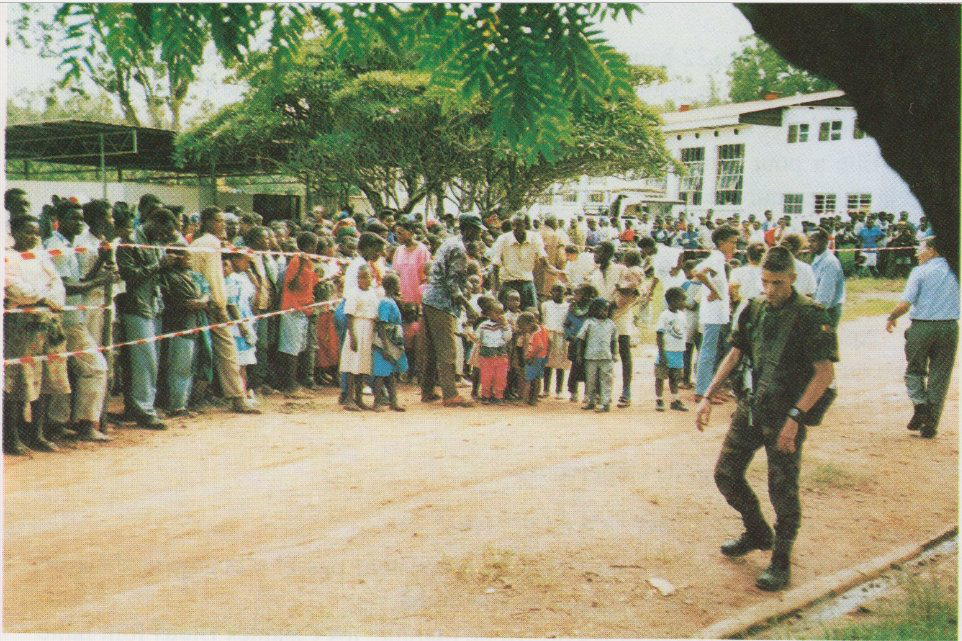Regional
Abandoned by UN peacekeepers, thousands of Tutsi were slain in ETO Kicukiro

Photo taken in 1994, when the Tutsi who had taken refuge in ETO- Kicukiro pleaded with UN peacekeepers not to be abandoned
At
the Nyanza Genocide Memorial in Kicukiro, Kigali, a ceremony for the 27th
commemoration of the Genocide against the Tutsi was recently held in the
commemoration week.
It was in memory of more than 3,000 Tutsi slain at Nyanza hill after being abandoned by UN peacekeepers that left them in the hands of the killers. Thousands of Tutsi were massacred after the Belgian UNAMIR contingent, which camped at the Technical School (ETO) in Kicukiro abandoned them to be slaughtered.
Thousands of Tutsi had gathered at the UN peacekeepers' base because first of all they knew that the mandate of the blue helmets was to protect them against the killers. Secondly, they had confidence that the international community, through the UN, valued their lives and had deployed a peacekeeping force so that they could enjoy peace.
The
confidence they had in UN forces quickly became a nightmare as they were
abandoned amidst machete and gun wielding interahamwe militia and government
forces. They were killed in their thousands. The savior they know is the RPF
forces that stopped the genocide. This betrayal by the international community
was a bitter pill to swallow. But on the other hand, it taught Rwandans the
hard way to find solutions to their problems.
The mayor of the City of Kigali, Pudence Rubingisa, reminded the youth that they should take the lead and learn the history of Rwanda so they can be able to counter those who deny and trivialize the genocide against The Tutsi. Egide Nkuranga, the president of Ibuka, a genocide survivors' umbrella organization, said that during the commemoration period, genocide deniers put more effort in acts of genocide denial which poses a big challenge to counter them.
Rwanda
is marking the 27th commemoration as the world grapples with the war against
COVID-19, which requires Rwandans to commemorate while abiding by the
guidelines to contain the spread of the pandemic. Because of the restrictions
on the number of people to visit the genocide sites at a time, the usual mass
gatherings during commemoration were not possible.

